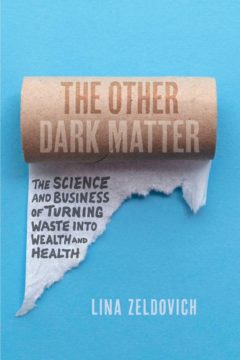Jenny Morber in Undark:
 IN OSAKA, JAPAN, in the early-1700s, neighboring villages fought over rights to city residents’ excrement. Much of Japan’s soil, sandy and poor in nutrients, produced feeble crops and supported few animals, so farmers depended on human fertilizer to grow food. And they were willing to pay for it. Often in exchange for a fee paid to each household, farmers collected what was called night soil at regular intervals to fashion into fertile compost. Poop was precious. Defecating at a friend’s house was considered an act of generosity — a gift. Landlords earned extra income by retaining collection rights from tenants: Often the bigger the household, the lower the rent. As the city of Osaka grew, so did the value of residents’ waste, until prices climbed to such extremes in the early 1700s that some desperate farmers resorted to stealing it, despite potential prison time.
IN OSAKA, JAPAN, in the early-1700s, neighboring villages fought over rights to city residents’ excrement. Much of Japan’s soil, sandy and poor in nutrients, produced feeble crops and supported few animals, so farmers depended on human fertilizer to grow food. And they were willing to pay for it. Often in exchange for a fee paid to each household, farmers collected what was called night soil at regular intervals to fashion into fertile compost. Poop was precious. Defecating at a friend’s house was considered an act of generosity — a gift. Landlords earned extra income by retaining collection rights from tenants: Often the bigger the household, the lower the rent. As the city of Osaka grew, so did the value of residents’ waste, until prices climbed to such extremes in the early 1700s that some desperate farmers resorted to stealing it, despite potential prison time.
Roughly a hundred years later, London’s River Thames was choked with human and animal waste, emitting noxious methane, ammonia, and the rotten egg smell of hydrogen sulfide. Seemingly more sewage than water, the river’s banks swelled with refuse, interfering with marine navigation and making life miserable for many Londoners. Finally compelled to act, city authorities contracted boats to carry the sludge out to sea and dump it — at the approximate cost of a million pounds, or more than $170 million in today’s U.S. dollars.
Why are these stories of human excrement so different? The key, according to science journalist Lina Zeldovich in “The Other Dark Matter: The Science and Business of Turning Waste into Wealth and Health,” is that one culture regarded poop as trash, the other as treasure.
More here.
